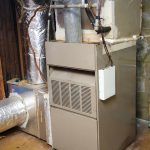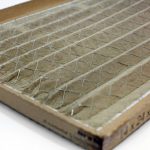
6 Tips for Using Your Electric Space Heater Safely
Winter is just around the corner, and we’re about to experience the coldest temperatures of the year. Fortunately, it doesn’t stay cold for long in north Florida and south Georgia, but we still see freezing temperatures a few days here and there. With colder temperatures, we often look for creative ways to stay warm, while keeping costs down.
Electric space heaters are convenient when you want a little extra heat to supplement your heating and air system. However, most space heaters are not intended as a long-term, viable solution to heat your entire home.
Even though they’re not as powerful as your home’s heating and air system, space heaters still use a lot of energy and can be dangerous if used incorrectly. Safety should always be on your mind when operating a space heater. Here are six safety tips you should remember.
Pick an Electric Space Heater Optimized for Safety
Safe, reliable space heaters should carry an Underwriters Laboratory (UL) certification. You’ll usually find this certification in the form of a label or stamp on your device and it means that your heater meets safety standards. You should also consider using a heater with other safety features, such as a guard around the heating element, automatic shut-off when tipped over or thermostatic shut-off feature once a desirable temperature is reached.
Keep Space Heaters Away From People and Objects
Space heaters typically generate hotter air than air from your vents. That means you’ll want to position your space heater in an area where it doesn’t directly blow on any objects or walls. You should also keep your space heater at least three feet away from anything that could catch fire, including decorations, drapes and furniture. Lastly, you don’t want to position your space heater too close if it’s blowing directly at you or someone else.
Keep Your Space Heater Away From Water
You should try not to use your space heater in your bathroom, kitchen, laundry room or any other areas where it would be exposed to water. If you do use your space heater in these areas, make sure it’s a safe distance from potential splashes or leaks. If your space heater does come in contact with water, it could damage your home’s electrical system, start a fire or pose a shock or electrocution risk to anyone nearby.
Avoid Using Extension Cords
You should always try to plug your space heater directly into a wall outlet with an adequate amperage rating. Check your device’s manual or with the manufacturer if you’re unsure of how many amps it uses. If you have to use an extension cord, use a short, heavy-duty cord that has at least 14-gauge wire (or larger). Space heaters carry an extreme amount of wattage and use heavy amperage. This means they can cause a fire if plugged into an insufficient or damaged extension cord.
Don’t Leave Your Space Heater on While Unattended
Your space heater should be a temporary heating solution. Most are meant to provide extra heat in the area around you, but typically not your entire home, especially for long periods of time. You should never leave your space heater on when you’re not home. You should also turn them off when you leave the room or go to sleep. If you anticipate not using your space heater for an extended period of time, it’s best to unplug it.
Check your Space Heater Regularly
You should periodically check your space heater to make sure it’s clean, it’s blowing the appropriate temperature and the unit and cord are not damaged. A damaged cord or dust and debris around the heating element are fire hazards. You also want to make sure that your heater isn’t overheating or overworking because it’s not blowing hot air.
If you find yourself using a space heater too much, you may have issues with your home. You may need insulation, duct cleaning or your heating and air system serviced. If you’re in need of heat this winter, call Barineau Heating and Air Conditioning. North Florida: (850) 580-4029 South Georgia: (229) 495-6599




